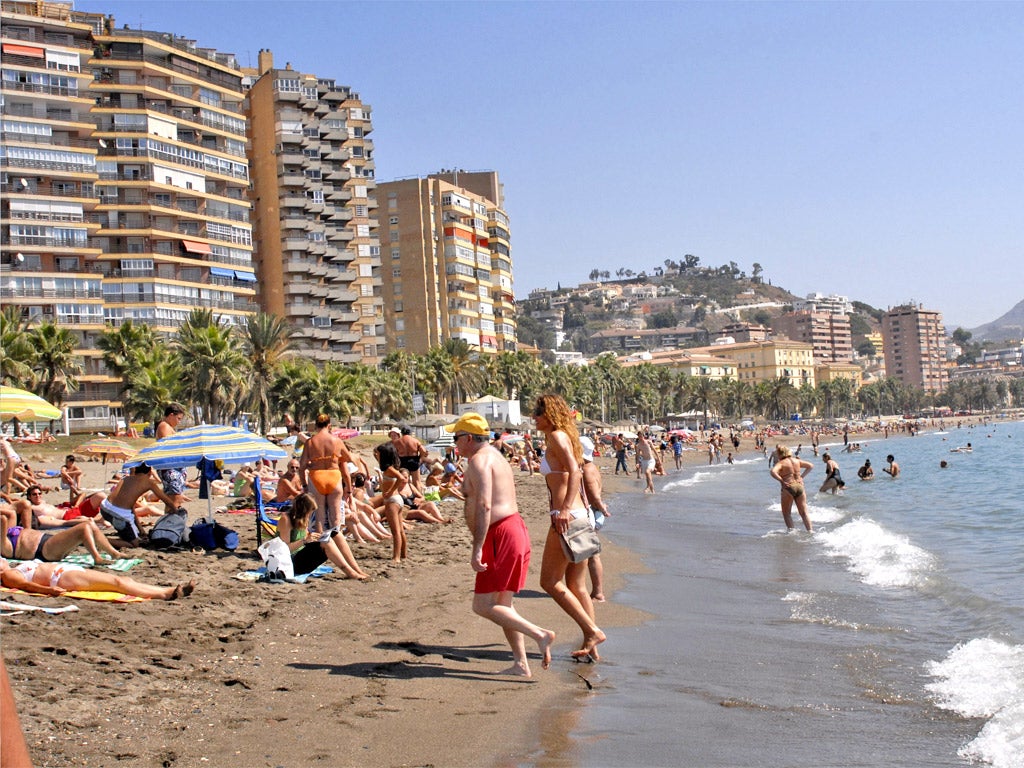'Any expats who could move back to the UK already have. The rest of us are trapped'
As house prices tumble, and the euro falls just as fast, a dark shadow has been cast over the Britons who retired to the sun

Your support helps us to tell the story
From reproductive rights to climate change to Big Tech, The Independent is on the ground when the story is developing. Whether it's investigating the financials of Elon Musk's pro-Trump PAC or producing our latest documentary, 'The A Word', which shines a light on the American women fighting for reproductive rights, we know how important it is to parse out the facts from the messaging.
At such a critical moment in US history, we need reporters on the ground. Your donation allows us to keep sending journalists to speak to both sides of the story.
The Independent is trusted by Americans across the entire political spectrum. And unlike many other quality news outlets, we choose not to lock Americans out of our reporting and analysis with paywalls. We believe quality journalism should be available to everyone, paid for by those who can afford it.
Your support makes all the difference.Even in Thursday's heavy rain showers, the small town of Villanueva del Trabuco high in the mountains above Malaga looks like a British expat's dream place in the sun: buried in olive groves, dozens of whitewashed houses with almond blossom creeping over stone latticework.
Think again: the five British residents gathered in Villanueva del Trabuco's biggest bar nursing drinks as they eye the teeming rain outside estimate there has been a massive fall in the town's numbers in the last four years, from 200 British households to just 30 in 2012. And it's still dropping.
"There is no end to the thinning-out process," Ronny Clarke, a British retiree living in Villanueva del Trabuco, tells The Independent. "As two of my friends said when they left here for the UK again: the party's over."
By many accounts, a cocktail of plummeting house prices, a remorselessly unfavourable exchange rate and a Spanish economy in ruins has dealt a knock-out blow to the economic welfare of tens of thousands of British pensioners living in Spain.
"Those who could move are already in the UK," Mr Clarke says. But what of those who remain?
"We are trapped," says E W, a British pensioner in her 60s with property on the Costa del Sol, who will not reveal her full name because she does not want her relatives worrying. "Your pension doesn't go as far as it did five years ago and people are already leaving. My plans were to stay here for 10 years, but I sold up everything in the UK, so I can't go back."
Professor Jose Luis Suarez, an expert in financial management from the IESE business school, says "foreigners who wish to sell their home face a problem. House prices are falling, so anybody wanting to sell has to make a large discount".
But after years of saving to move to Spain, what is prodding them to move back? The British retirees cite the exchange rate as one of the biggest issues, harking back to when £1 would get you €1.50 compared with €1.20 or €1.10 now.
That difference is crucial to the quality of life abroad for those reliant on British pensions. And with no property back in the UK, they have no choice but to stick it out. At the same time, the cost of living has soared in Spain. John French, a 78-year-old who proudly recalls that he was one of the first Britons to set up a home in Fuente de Piedra further inland, says that his wife came out of the bank "laughing her head off" recently because the exchange rate had improved to €1.22 for the first time in months. But, he adds gloomily, corned beef prices in his local Iceland have gone through the roof.
Estimating exactly how many British pensioners are in stuck in a cleft stick property-wise in Spain is difficult given that many UK expats do not notify authorities when heading south. The UK's Office for National Statistics notes that since 2008, when Spain's economic crisis began, British emigration figures have been dropping.
More eloquent, though, is the way British life has been knocked out of villages like Villanueva del Trabuco. Where once there were four bars mainly catering to the Brits, now there is one.
"My local village is like a ghost town, so many expats have left now," a long-term resident in the Almanzora region says. He is desperate to sell and return to the UK, but "the money we could get off the house, even if we could sell it, would be minimal". The man, who asks not to be identified, is among those sticking to Spain, but not out of preference: he bought his property in good faith but it then turned out to have illegal or irregular status. This is far from being an unusual story. In Andalusia there are an estimated 300,000 such properties and their owners, many of them British, find they are now doubly trapped – with unsellable houses in a plummeting market.
Some residents believe the much-feared EU bailout, which could see Spain outside the euro, would not lead to the mass evacuation the scaremongers predict. Rather, devaluation could make their pensions go a lot further: "There'd be dancing in the streets," another British pensioner in Malaga says.
But as El Mundo pointed out in a recent editorial, it is the permanent living on the edge of bankruptcy that seems to be causing so much damage to the Spanish economy.
And the longer that uncertainty continues, the more elderly Britons will be forced to pop their key through the letterbox of their former Costa dream home and quit – or sit and await the bailiffs.
Join our commenting forum
Join thought-provoking conversations, follow other Independent readers and see their replies
Comments